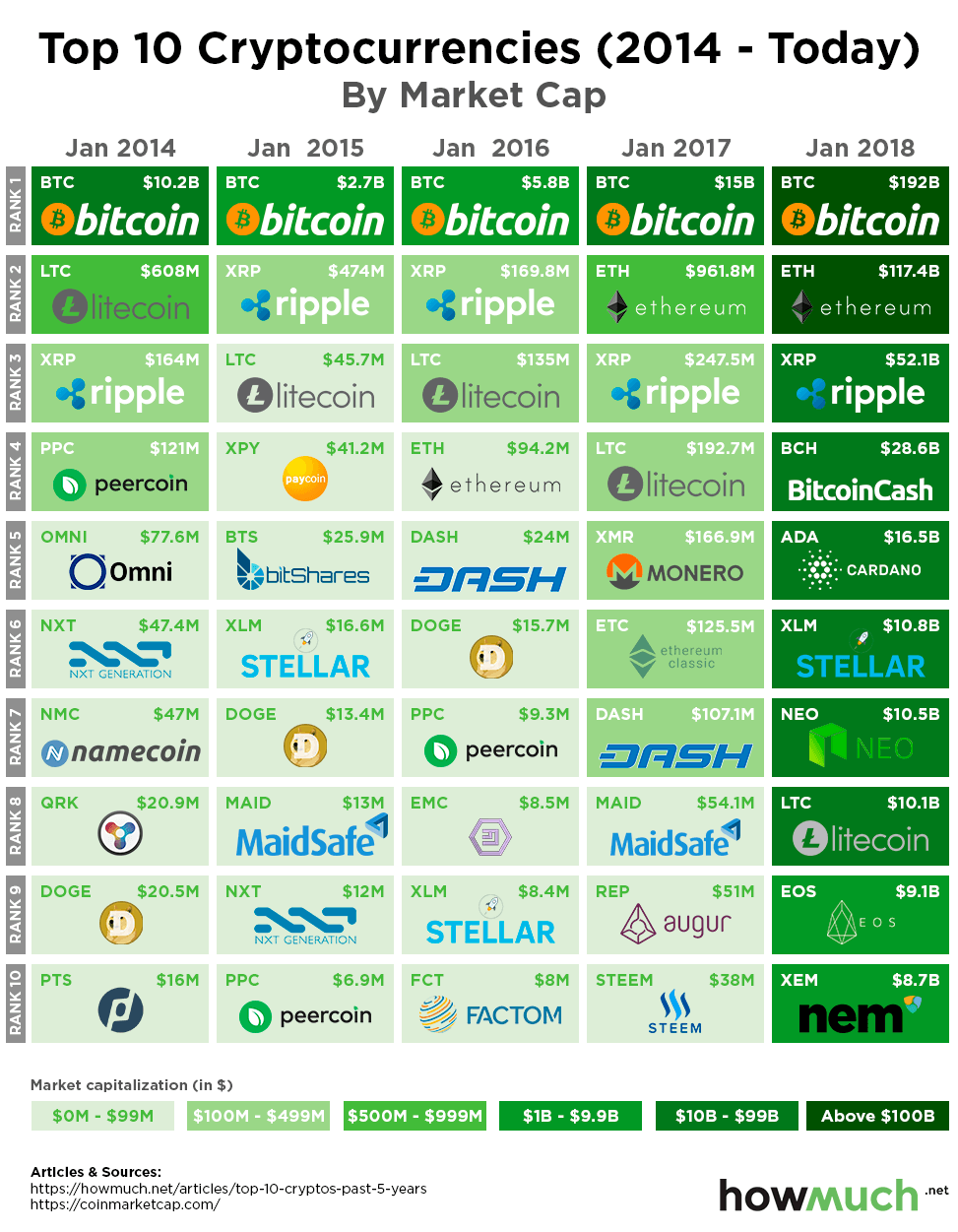- Do all cryptocurrencies use blockchain
- Are all cryptocurrencies based on blockchain
- Value of all cryptocurrencies
All the cryptocurrencies
The first chain to launch smart contracts was Ethereum. A smart contract enables multiple scripts to engage with each other using clearly defined rules, to execute on tasks which can become a coded form of a contract 14red casino. They have revolutionized the digital asset space because they have enabled decentralized exchanges, decentralized finance, ICOs, IDOs and much more. A huge proportion of the value created and stored in cryptocurrency is enabled by smart contracts.
Coinlore Independent Cryptocurrency Research Platform: We offer a wide range of metrics including live prices, market cap, trading volumes, historical prices, yearly price history, charts, exchange information, buying guides, crypto wallets, ICO data, converter, news, and price predictions for both short and long-term periods. Coinlore aggregates data from multiple sources to ensure comprehensive coverage of all relevant information and events. Additionally, we provide APIs and widgets for developers and enterprise users.
The very first cryptocurrency was Bitcoin. Since it is open source, it is possible for other people to use the majority of the code, make a few changes and then launch their own separate currency. Many people have done exactly this. Some of these coins are very similar to Bitcoin, with just one or two amended features (such as Litecoin), while others are very different, with varying models of security, issuance and governance. However, they all share the same moniker — every coin issued after Bitcoin is considered to be an altcoin.
Welcome to CoinMarketCap.com! This site was founded in May 2013 by Brandon Chez to provide up-to-date cryptocurrency prices, charts and data about the emerging cryptocurrency markets. Since then, the world of blockchain and cryptocurrency has grown exponentially and we are very proud to have grown with it. We take our data very seriously and we do not change our data to fit any narrative: we stand for accurately, timely and unbiased information.

Do all cryptocurrencies use blockchain
Every node in the network proposes its own blocks in this way because they all choose different transactions. Each works on their own blocks, trying to find a solution to the difficulty target, using the “nonce,” short for number used once.
Cryptocurrencies pioneered in blockchain technology. And while blockchain has many advantages over traditional, centralized banking systems, some believe that there are drawbacks to certain aspects of blockchain technology, including scalability problems, slow block creation times, mining fees and double-spending attacks.
The Bitcoin protocol is built on a blockchain. In a research paper introducing the digital currency, Bitcoin’s pseudonymous creator, Satoshi Nakamoto, referred to it as “a new electronic cash system that’s fully peer-to-peer, with no trusted third party.”
The name blockchain is hardly accidental: The digital ledger is often described as a “chain” that’s made up of individual “blocks” of data. As fresh data is periodically added to the network, a new “block” is created and attached to the “chain.” This involves all nodes updating their version of the blockchain ledger to be identical.
Bitcoin is a perfect case study of the inefficiencies of blockchain. Bitcoin’s PoW system takes about 10 minutes to add a new block to the blockchain. At that rate, it’s estimated that the blockchain network can only manage about seven transactions per second (TPS). Although other cryptocurrencies, such as Ethereum, perform better than Bitcoin, the complex structure of blockchain still limits them. Legacy brand Visa, for context, can process 65,000 TPS.
Are all cryptocurrencies based on blockchain
Understanding the different types of cryptocurrency is essential if you plan to invest, trade, or simply participate in the blockchain ecosystem. This guide will break down the major categories of crypto and explain what makes each one unique, so you can navigate the space with greater clarity and confidence.
Teresa Halvorson is a skilled writer with a passion for financial journalism. Her expertise lies in breaking down complex topics into engaging, easy-to-understand content. With a keen eye for detail, Teresa has successfully covered a range of article categories, including currency exchange rates and foreign exchange rates.
A blockchain is a decentralized ledger of all transactions across a peer-to-peer network. Using this technology, participants can confirm transactions without a need for a central clearing authority. Potential applications can include enterprise blockchain applications, sustainability, tokenization, fund transfers, supply chain tracking and many other areas.
Every cryptocurrency is a form of digital currency built on blockchain technology that has to be understood as a sort of virtual currency. Our everyday understanding of money is based on how we believe the value of a different currency is determined by the nation-states and banks that issue it. When we understand cryptocurrency, we realize that this isn’t the case at all. Cryptocurrencies don’t have any value in and of themselves, but instead, gain value based on people believing that they are valuable.

Understanding the different types of cryptocurrency is essential if you plan to invest, trade, or simply participate in the blockchain ecosystem. This guide will break down the major categories of crypto and explain what makes each one unique, so you can navigate the space with greater clarity and confidence.
Teresa Halvorson is a skilled writer with a passion for financial journalism. Her expertise lies in breaking down complex topics into engaging, easy-to-understand content. With a keen eye for detail, Teresa has successfully covered a range of article categories, including currency exchange rates and foreign exchange rates.
Value of all cryptocurrencies
Coinlore Independent Cryptocurrency Research Platform: We offer a wide range of metrics including live prices, market cap, trading volumes, historical prices, yearly price history, charts, exchange information, buying guides, crypto wallets, ICO data, converter, news, and price predictions for both short and long-term periods. Coinlore aggregates data from multiple sources to ensure comprehensive coverage of all relevant information and events. Additionally, we provide APIs and widgets for developers and enterprise users.
The very first cryptocurrency was Bitcoin. Since it is open source, it is possible for other people to use the majority of the code, make a few changes and then launch their own separate currency. Many people have done exactly this. Some of these coins are very similar to Bitcoin, with just one or two amended features (such as Litecoin), while others are very different, with varying models of security, issuance and governance. However, they all share the same moniker — every coin issued after Bitcoin is considered to be an altcoin.
Each of our coin data pages has a graph that shows both the current and historic price information for the coin or token. Normally, the graph starts at the launch of the asset, but it is possible to select specific to and from dates to customize the chart to your own needs. These charts and their information are free to visitors of our website. The most experienced and professional traders often choose to use the best crypto API on the market. Our API enables millions of calls to track current prices and to also investigate historic prices and is used by some of the largest crypto exchanges and financial institutions in the world. CoinMarketCap also provides data about the most successful traders for you to monitor. We also provide data about the latest trending cryptos and trending DEX pairs.
The first chain to launch smart contracts was Ethereum. A smart contract enables multiple scripts to engage with each other using clearly defined rules, to execute on tasks which can become a coded form of a contract. They have revolutionized the digital asset space because they have enabled decentralized exchanges, decentralized finance, ICOs, IDOs and much more. A huge proportion of the value created and stored in cryptocurrency is enabled by smart contracts.
(At the bottom of this page you will find frequently asked questions and answers. For example, we answer the questions: Is cryptocurrency legal? Why do Bitcoin have value? How do I buy cryptocurrency? Which exchange has the lowest fees?)
